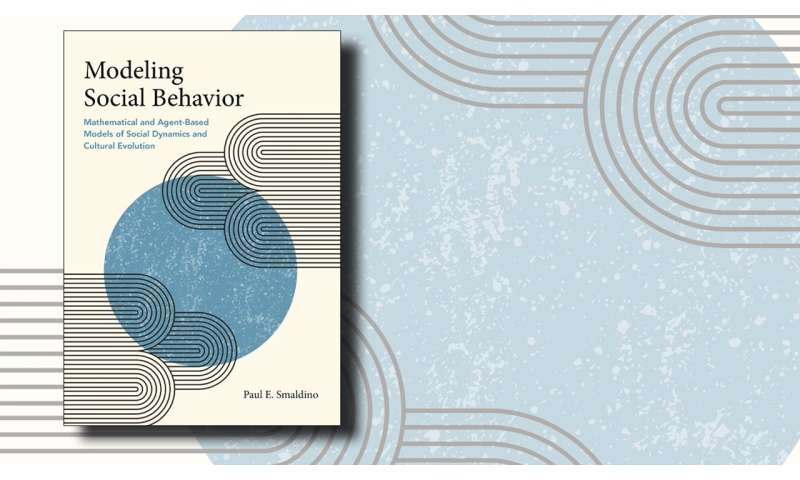New book offers thoughtful approach to modeling complex social systems

We are often puzzled by human social phenomena. Why does misinformation sometimes spread so easily while scientific facts have trouble taking hold? Why is it so difficult to cooperate on problems that obviously threaten humanity, such as climate change? Why are people willing to risk their lives, and the lives of their families, but are unwilling to be vaccinated?
All of these phenomena are emerging from complex cognitive–social systems that can be difficult to understand using only verbal reasoning. To better understand their structure and dynamics, it is helpful to generate and manipulate them computationally.
There are many computational models of various aspects of social systems, but still relatively few are done by social scientists. While cognitive scientists, sociologists, political scientists, anthropologists, historians, economists, and other social scientists possess deep knowledge about critical aspects of human cognitive–social systems, they often have little experience with computational models.
A new book by SFI External Professor Paul Smaldino (University of California, Merced) offers a uniquely helpful, comprehensive, and approachable solution. In "Modeling Social Behavior: Mathematical and Agent-Based Models of Social Dynamics and Cultural Evolution" (Princeton University Press, 2023), Smaldino provides an excellent introduction to agent-based modeling for social scientists and anyone else interested in modeling cognitive–social systems. Notably, the book also integrates the use of computational agent-based models with classic mathematical approaches from dynamical systems and game theory.
The book helps novices to build and experiment with their own models quickly and easily, and inspires seasoned modelers to re-examine their assumptions and interpretations. Smaldino provides numerous examples of models of various social phenomena, from segregation, contagion, belief dynamics, and cooperation, to the science of science and social networks. Each chapter includes examples in NetLogo, an easy-to-learn but powerful modeling platform.
Smaldino's writing is engaging, witty, and full of fun and useful real-world examples. He provides meta-level commentary on the philosophy of models—their relationship with reality, the analogy with maps, their limitations and advantages, and best practices for designing and interpreting agent-based models. Readers will therefore not only master the practice of modeling, but also gain insights into the way models should be done. And, this book is just pure fun; readers will think about large modeling problems in the company of cubist chickens and cool dinosaurs.
Smaldino's book complements the seminal work on agent-based models by SFI-associated researchers Joshua Epstein and Rob Axtell, John Miller and Scott Page, Sam Bowles and Herb Gintis, as well as excellent recent books on agent-based models in archaeology by Stefani Crabtree and colleagues, and on modeling more generally by Scott Page. It is a wonderful thinking and teaching resource for anyone who strives for a deeper understanding of the bewildering social complexity around us.
More information:
Modeling Social Behavior: Mathematical and Agent-Based Models of Social Dynamics and Cultural Evolution. www.sfipress.org/books/the-quark-and-the-jaguar
Provided by Santa Fe Institute